第68章
The attachment I felt for him was all the more genuine from its being my first friendship with a man of my own age. The pleasure which Iderived from this intimacy gave me a new insight into life, and revealed capacities and needs of the soul of which I had hitherto been ignorant. As I could never wholly break away from that love of chivalry which had been implanted in me in early childhood, it pleased me to look upon him as my "brother in arms," and I expressed a wish that he would give me this special title too, to the exclusion of every other intimate friend. He caught at the idea with a gladness of heart that showed me how lively was the sympathy between us. He declared that I was a born naturalist, because I was so fitted for a roving life and rough expeditions. Sometimes he would reproach me with absent-mindedness, and scold me seriously for carelessly stepping upon interesting plants, but he would assert that I was endowed with a sense of method, and that some day I might invent, not a theory of nature, but an excellent system of classification. His prophecy was never fulfilled, but his encouragement aroused a taste for study in me, and prevented my mind from being wholly paralyzed by camp life. To me he was as a messenger from heaven; without him I should perhaps have become, if not the Hamstringer of Roche-Mauprat, at all events the savage of Varenne again. His teachings revived in me the consciousness of intellectual life. He enlarged my ideas and also ennobled my instincts; for, though his marvellous integrity and his modest disposition prevented him from throwing himself into philosophical discussions, he had an innate love of justice, and he judged all questions of sentiment and morality with unerring wisdom.
He acquired an ascendency over me which the abbe had never been able to acquire, owing to the attitude of mutual distrust in which we had been placed from the beginning. He revealed to me the wonders of a large part of the physical world, but what he taught me of chiefest value was to learn to know myself, and to ponder over my own impressions. I succeeded in controlling my impulses up to a certain point. I could never subdue my pride and violent temper. A man cannot change the essence of his nature, but he can guide his divers faculties towards a right path; he can almost succeed in turning his faults to account--and this, indeed, is the great secret and the great problem of education.
The conversations with my friend Arthur led me into such a train of thought that from my recollections of Edmee's conduct I came to deduce logically the motives which must have inspired it. I found her noble and generous, especially in those matters which, owing to my distorted vision and false judgment, had caused me most pain. I did not love her the more for this--that would have been impossible--but I succeeded in understanding why I loved her with an unconquerable love in spite of all she had made me suffer. This sacred fire burned in my soul without growing dim for one instant during the whole six years of our separation. In spite of the rich vitality which pulsed through my veins; in spite of the promptings of an external nature full of voluptuousness; in spite of the bad examples and numerous opportunities which tempted mortal weakness in the freedom of a roving, military life, I call God to witness that I preserved my robe of innocence undefiled, and that I never felt the kiss of a woman.
Arthur, whose calmer organization was less susceptible to temptation, and who, moreover, was almost entirely engrossed in intellectual labour, did not always practise the same austerity; nay, he frequently advised me not to run the risk of an exceptional life, contrary to the demands of Nature. When I confided to him that a master-passion removed all weaknesses from my path and made a fall impossible, he ceased to reason against what he called my fanaticism (this was a word very much in vogue and applied indiscriminately to almost everything).
I observed, indeed, that he had a more profound esteem for me, I may even say a sort of respect which did not express itself in words, but which was revealed by a thousand little signs of compliance and deference.
One day, when he was speaking of the great power exercised by gentleness of manners in alliance with a resolute will, citing both good and bad examples from the history of men, especially the gentleness of the apostles and the hypocrisy of the priests of all religions, it came into my mind to ask him if, with my headstrong nature and hasty temper, I should ever be able to exercise any influence on my fellows. When I used this last word I was, of course, thinking only of Edmee. Arthur replied that the influence which Iexercised would be other than that of studied gentleness.
"Your influence," he said, "will be due to your natural goodness of heart. Warmth of soul, ardour and perseverance in affection, these are what are needed in family life, and these qualities make our defects loved even by those who have to suffer from them most. We should endeavour, therefore, to master ourselves out of love for those who love us; but to propose to one's self a system of moderation in the most intimate concerns of love and friendship would, in my opinion, be a childish task, a work of egotism which would kill all affection, in ourselves first, and soon afterwards in the others. I was speaking of studied moderation only in the exercise of authority over the masses.
Now, should your ambition ever . . ."